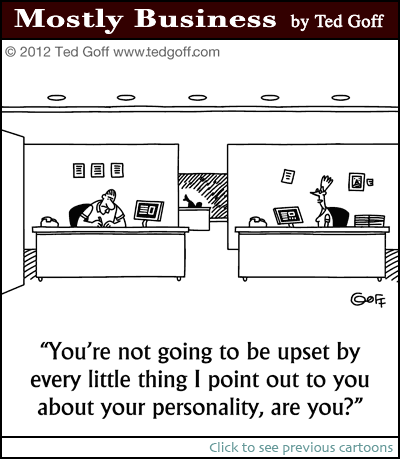Only GE can carry the below Mission Statement. For any other company the below Mission Statement would sound preposterous. It is the statement of a winner, it is as if their former CEO, Welch, is talking to you. It could be a speech of a student leader, bold, fearless, undaunted, prepared to deliver, but yet unfounded and therefore amusing. In this case however it is the passionate inheritance of a generation of company builders, managers, leaders who promised to build and know they already achieved their goals today and in the past. There is a clarity and certainty between the lines that makes you shiver.
------------------
Values - Imagine, solve, build and lead - four bold verbs that express what it is to be part of GE. Their action-oriented nature says something about who we are - and should serve to energize ourselves and our teams around leading change and driving performance.
For more than 125 years, GE has been admired for its performance and imaginative spirit. The businesses that we invent and build fuel the global economy and improve people's lives. Today, we are 11 technology, services and financial businesses with more than 300,000 employees in 160 countries around the world.
What unifies us? Our Actions and Values.
What we do and how we work is distinctly GE. It's a way of thinking and working that has grounded our performance for decades. It's a way of talking about our work and ourselves that takes the best from our past and expresses it in the spirit and language of GE today.
It's about who we are, what we believe, where we're headed, how we'll get there. It's how we
imagine,
solve,
build and
lead.
Imagine.From the very beginnings of our company, when Thomas Edison was changing the world with the power of ideas, GE has always stood for one capability above all others - the ability to imagine. Imagine is a sense of possibility that allows for a freedom beyond mere invention. Imagine dares to be something greater. At GE,
Imagine is an invitation to dream and do things that you didn't know you could do. Because at GE the act of
imagining is fused with empowerment - the confidence that what we imagine, we can make happen.
Solve.Every business has to have a reason to exist - a reason that answers the fundamental question of "why are we here?". For GE, the big question has a simple answer: We exist to
solve problems - for our customers, our communities and societies, and for ourselves.
Build.From 0 to 60 in six seconds? Try zero to $5 billion in five years. It's not so much a vision for our future - where we're headed is in many ways a reflection of where we've already been. It's not a destination. It's a quest. A quest for growth. And when we look to the future, we know that for us, there's only one way to get there. Build. Lead. Imagine. Solve. Build. Each of these is merely a word without one vital element:
Lead.GE is already synonymous with
leadership. But with this mantle comes responsibility. And it's not just a responsibility to maintain the status quo or manage what worked yesterday. It's the bigger responsibility to change. Because change is the essence of what it means to
lead. It's a call to action that engages our unceasing curiosity, our passion, and our drive to be first in everything that we do.
We Are a Company to Believe In.Imagine.
Build.
Solve.
Lead.
In the end, our success is measured not only by our ability to think big, dazzling thoughts, but by our commitment to sweat the small stuff that brings ideas to life. It's a way - thinking and doing - that has been at the heart of GE for years.
The worth of this framework is how we translate it into our own personal work ethic and then extend it to our teams, businesses, cultures and different regions of the world. It's permission to cast aside any approach that seems dated - to
imagine,
solve,
build and
lead a better way of doing things.
ValuesWhile GE has always performed with integrity and values, each business generation expresses those values according to the circumstances of the times. Now more than ever the expression and adherence to values is vital. More than just a set of words, these values embody the spirit of GE at its best. They reflect the energy and spirit of a company that has the solid foundation to lead change as business evolves. And they articulate a code of behavior that guides us through that change with integrity. The words reflected here represent a revitalization of our values. They are a call to action that asks every GE employee to recommit to a common set of beliefs about how we work in our world today. And while some of these words are new in their expression, they are based on a continuum of how GE has grown and performed through generations. They are our words and our values... in our own voice.
- Passionate
- Curious
- Resourceful
- Accountable
- Teamwork
- Committed
- Open
- Energizing
- Always With Unyielding Integrity
The
GE Values Card
























